How children’s television can help our kids develop life skills
Emma Field
14 Jun 2024
Screen time is a contentious issue for modern parents. Today’s children are inundated with screens during their formative years, right at the time when they are developing their values, identity and self-esteem. Simultaneously, parents are swamped by conflicting messages about how much screen time is too much, whether it’s from the media, a well-meaning friend or family member, or even a stranger on public transport. It can cause confusion, stress and guilt.
There are national and international guidelines which parents can turn to – but research has begun to show that it’s not just the time children spend engaging with screens that matters. Dr Kate Highfield, who researches the impact of technology as a tool with young children, parents and educators says we need to focus on the quality and not the quantity of what children are watching.
“If I had magic powers, I would get rid of the concept of screen ‘time’,” she tells The Conversation. “We need to be talking about screen quality instead. We need to look at what our kids are watching and how they are watching it.”
Screen content can be a powerful way to provide children with positive role models who can demonstrate important social and emotional skills. Engaging in quality screen content is an opportunity for children to consider situations from another person’s perspective. It can build empathy, kindness, social cohesion and shared values.
The following ACTF-supported content can help children of all ages to develop social and emotional skills, and prepare them for big life transitions like starting school and adolescence.
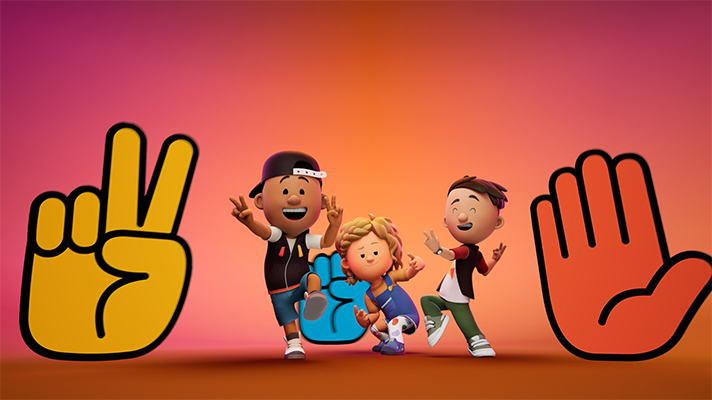
Eddie’s Lil’ Homies (NITV and Netflix)
Inspired by the children’s book series by AFL legend Eddie Betts, Eddie’s Lil’ Homies follows Eddie and his friends on their playground adventures as they navigate the fun and challenges of friendship. A fun, colourful and playful series, Eddie’s Lil’ Homies can help children from preschool age to develop personal and social skills like communication, collaboration and conflict resolution.
Viewers will note that there are no adults in the series. Producer Eddie Betts says this was a conscious decision, designed to help children to develop independence and autonomy.
“The kids in Eddie’s Lil’ Homies work as a team – they show different styles of leadership to get the best outcome and to solve problems without any parents around,” he said. “We wanted kids to find that self-determination, to find that leadership, and work together with their friends to find solutions.”
The series utilises music to reinforce the message of the show with short, catchy raps which viewers can join in on.
“We work out the strategy, what’s happening, and then we rap about it and it’s fun, it’s catchy, and it’s enjoyable,” said Eddie.

Little J & Big Cuz (NITV and ABC)
Little J and Big Cuz are a couple of Indigenous Australian kids living with their Nanna and Old Dog on Country, busy with the ups and downs of the playground and the classroom.
This unique animated series was developed with the Australian Council for Educational Research (ACER) to support the transition to school for Indigenous children and their families, but the series is relevant to all kindergarten/pre-primary students, helping them to learn about the routines and expectations at primary school. In each episode, Little J, Big Cuz and their friends navigate typical school occurrences like show-and-tell, homework, sport and school performances. These everyday activities are then used to support viewers’ social and emotional development. For example, in the Series 2 episode ‘School Sleepover’, the children reveal their fears about sleeping away from home, like bedwetting or being afraid of the dark. Together, they talk each other through their worries and develop strategies to overcome their fears.
Case studies prepared by ACER revealed that using Little J and Big Cuz in educational settings assisted language development and supported students’ emotional development and wellbeing.
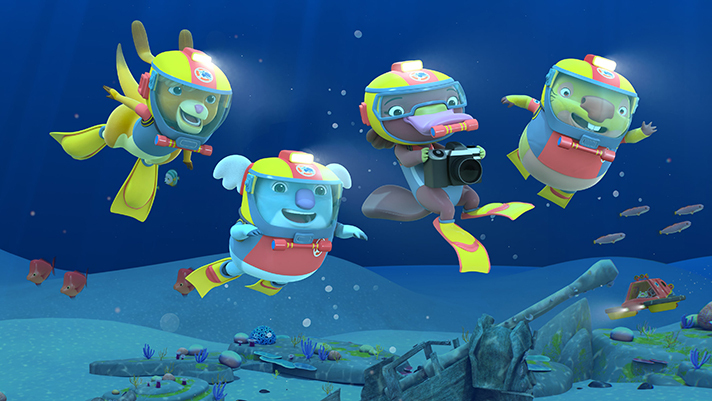
Kangaroo Beach (ABC)
Kangaroo Beach is a fun-filled series about the adventures of four young animal friends training as junior cadets with their lifeguard heroes. The series is fun, engaging and entertaining while also empowering viewers with an imperative message about water safety in every episode.
“We developed Kangaroo Beach in response to the fact that child mortality through drowning globally is one of the leading causes of child mortality,” said Executive Producer Patrick Edgerton. “In Australia we’re a beach-going nation, we’re a river-swimming, backyard pool-swimming nation too, so we wanted to create a show that was entertainment first and foremost, but also provided crucial water safety messages.”
The characters in Kangaroo Beach model skills such as how to keep calm and float, and identify rip currents, using catchy songs to reinforce safety messages that have been endorsed by Surf Educators International and Surf Life Saving Australia.
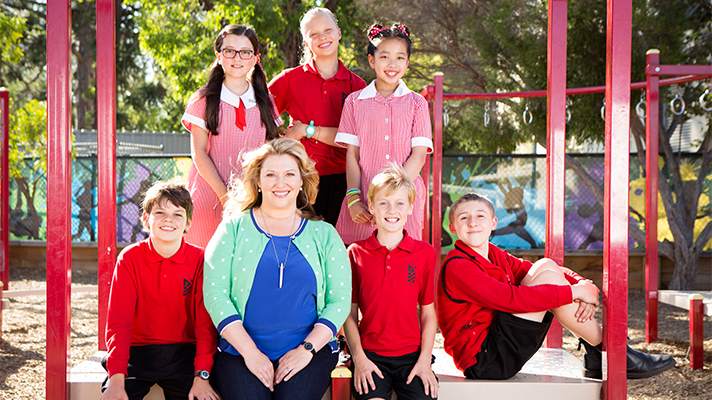
Little Lunch (ABC)
Little Lunch is a mockumentary-style comedy series where every episode takes place during the morning snack time, tackling the big issues in the playground, like who gets to go on the monkey bars? Using humour and relatable characters in a familiar school setting, the series explores many relevant themes for primary school-aged students, including ethical dilemmas, relationships, self-reflection and friendship.
Teacher Karsan Hutchinson uses Little Lunch to teach his students social and emotional skills including resilience, conflict resolution, empathy, and how to manage their own emotions.
“Each episode has a theme that can be explored as a class, potentially through a unit of work,” he said. “‘The Joke Competition’ deals with confidence, ‘The Body Bus’ delves into anxiety around perception and self-consciousness, jealousy is the theme of ‘The Relationship’ episode, and resilience is depicted in ‘The Corridor Outside 6E’.” For children nervous about the transition from primary to high school, ‘The Nightmare Before Graduation’ explores the mixed feelings students face when their primary schooling draws to a close.
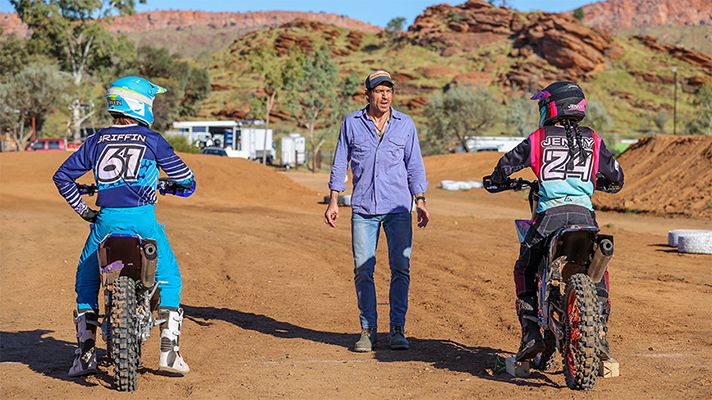
Maverix (ABC)
MaveriX tells the story of six young motocross riders who come together to form a team, aiming to make the national titles or crash out trying. Itis a thrilling, high-adrenaline adventure series which demonstrates the grit, courage, and teamwork required to succeed in the competitive world of motocross racing.
MaveriX is a visually spectacular series showcasing daring stunts performed in a stunning outback setting – but co-creator, executive producer and director Isaac Elliott says it’s also a vehicle to teach the child audience about hard work, resilience and friendship.
“We live in quite a competitive education landscape and competitive sport landscape and competitive social media landscape. We spend a lot of our time comparing ourselves to other people in these spheres, whether it’s an exam or whether it’s social media followers or whether it’s motocross or another sport,” he said.
“What we show is that you can be competitive but you can also be friends. It doesn’t stop you from caring about other people, which is really a really powerful thing for kids and teenagers to learn.”
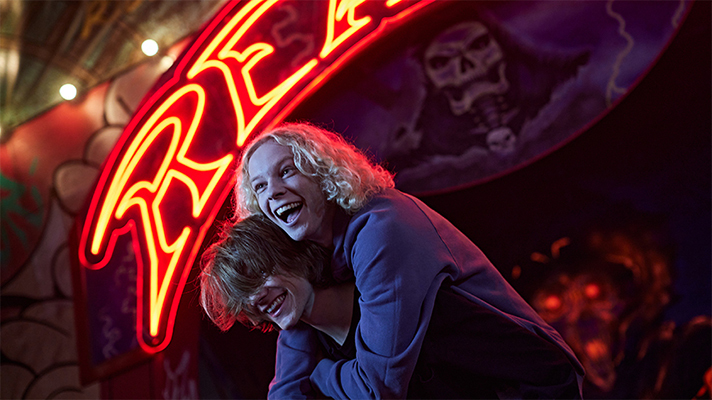
Crazy Fun Park (ABC)
Crazy Fun Park is a comedy-horror series for teens and young adults which tells the story of two best friends, Chester and Mapplethorpe, so close that even death can’t keep them apart. After Mapplethorpe is killed at an abandoned theme park, Chester discovers that his friend’s soul has stuck around, along with the ghosts of other teenagers who have died at the fun park.
The idea for the series came about through creator Nick Verso’s experience with death and grief as a teenager, which he didn’t have the tools to deal with. “I never really spoke about it,” he said. “There was no language for a teenage boy to process grief and what happens when you watch somebody’s life get ripped away from them.”
Nick wanted to create a show that dealt with grief and loss among the emotional chaos of adolescence, but without being morose. “I know that as a teenage boy I wouldn’t have wanted to tune into that,” he said. “I wanted it to be a fun, explosive celebration of life and spirit… a high energy party [where] the emotion just gradually sneaks up on them, giving them tools to explore and process difficult feelings.”

More Than This (Paramount+ and Ten)
Aged 17 and navigating high school during Covid lockdowns, Australian actor Olivia Deeble created More Than This out of frustration at the lack of authentic on-screen teen stories. She collaborated with friends and peers to create a story that reflects the true contemporary Australian teenage experience.
The series follows a group of teens as they navigate Year 12, tackling many important issues facing Australian adolescents today, including bullying, self-harm, substance use, disordered eating and online harm. Adolescent psychologist Dr Michael Carr-Gregg says screen content like More Than This can help equip viewers with the tools to navigate these sorts of issues.
“Screen content that accurately and authentically reflects the modern-day adolescent experience has never been as important as it is right now as so many teenagers battle mental health issues,” he said. “There’s no magic formula to make these issues disappear – the only way to deal with them is to equip our children with the emotional resilience and practical strategies to tackle them when they appear.”
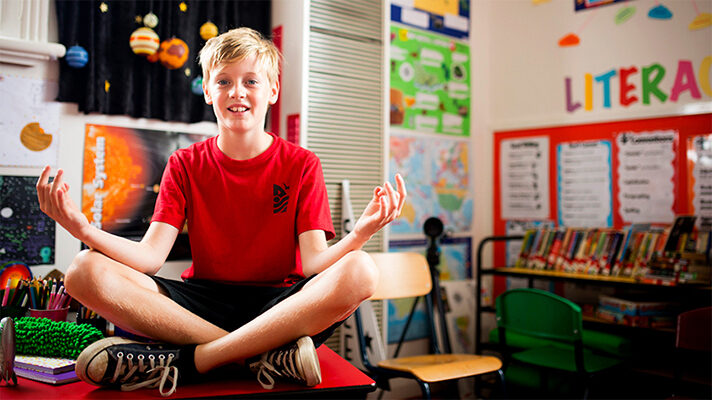

Comments
Comments for this post are open.